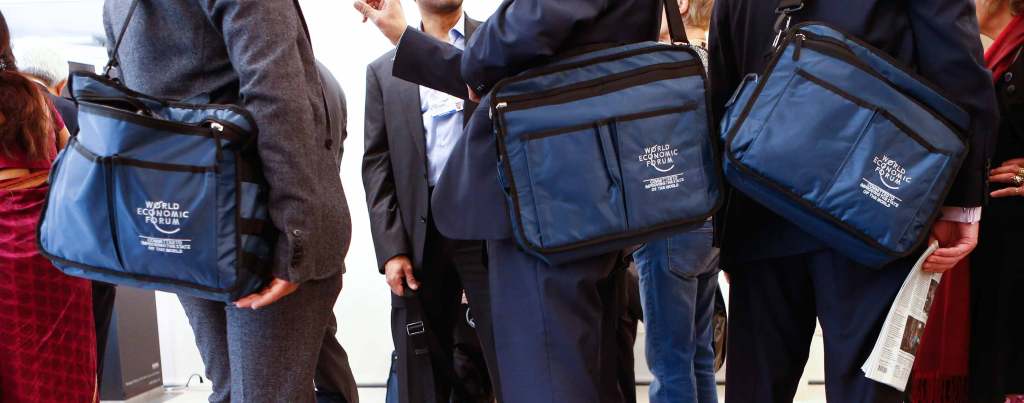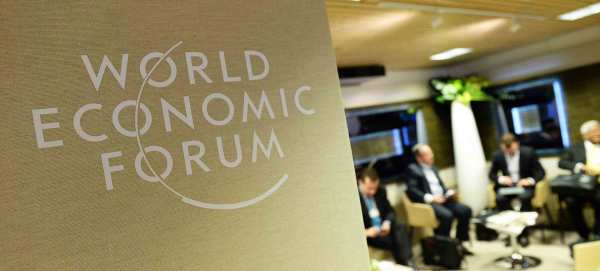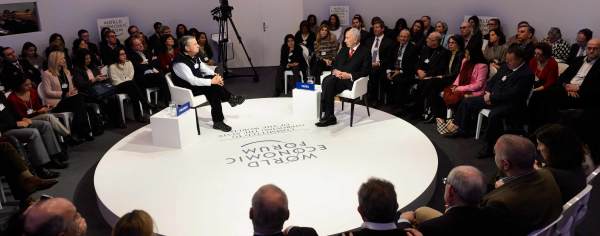 © Ruben Sprich/Corbis
© Ruben Sprich/CorbisGlobal income inequality has risen to unprecedented levels: According to a new report from Oxfam, the 62 richest people in the world hold as much wealth as those at the bottom half of the world’s income scale. Many politicians, economists, activists, and labor leaders have sounded the alarm, highlighting how inequality hurts the middle class, damages the environment, and impedes social inclusion.
CEOs and business leaders have been less prominent in this discussion, but a growing number are concerned about the chasm between the one percent and the rest of the world, and about inequality’s toll on people, communities, business, and the economy at large. We sat down with three of them to talk candidly about the role capitalism and the private sector have played in perpetuating inequality—and what those systems, and the people who work in them, can do today to challenge it.
Paul Polman, CEO of Unilever
Paul Polman says that inequality is the biggest obstacle we face to creating a sustainable and equitable future. “If you belong to this lucky two percent of the population that frankly can do what they want,” he says, “you have to put yourself to the service of the other 98 percent.” To address inequality and create shared prosperity, he emphasizes the need to make systems and institutions worthy of people’s trust.
Accessibility Statement
- All videos produced by the Ford Foundation since 2020 include captions and downloadable transcripts. For videos where visuals require additional understanding, we offer audio-described versions.
- We are continuing to make videos produced prior to 2020 accessible.
- Videos from third-party sources (those not produced by the Ford Foundation) may not have captions, accessible transcripts, or audio descriptions.
- To improve accessibility beyond our site, we’ve created a free video accessibility WordPress plug-in.
Rajiv Joshi, Managing Director of the B Team
Rajiv Joshi makes a business case for tackling inequality: With 3.5 billion people currently unable to participate in the economy, addressing inequality represents “the biggest economic opportunity of our generation.” By sharing value more fairly, he says, we will enable millions of people to realize their full potential.
Accessibility Statement
- All videos produced by the Ford Foundation since 2020 include captions and downloadable transcripts. For videos where visuals require additional understanding, we offer audio-described versions.
- We are continuing to make videos produced prior to 2020 accessible.
- Videos from third-party sources (those not produced by the Ford Foundation) may not have captions, accessible transcripts, or audio descriptions.
- To improve accessibility beyond our site, we’ve created a free video accessibility WordPress plug-in.
Martin Whittaker, CEO of JUST Capital
Martin Whittaker argues that capitalism and justice are not at odds with each other—it’s just that we’ve lost sight of the deep sense of justice embedded in early ideas about how capitalist markets should function. “We’re so focused on the invisible hand of the market, we’d forgotten about this idea of justice and the moral dimension of markets,” he says.
Accessibility Statement
- All videos produced by the Ford Foundation since 2020 include captions and downloadable transcripts. For videos where visuals require additional understanding, we offer audio-described versions.
- We are continuing to make videos produced prior to 2020 accessible.
- Videos from third-party sources (those not produced by the Ford Foundation) may not have captions, accessible transcripts, or audio descriptions.
- To improve accessibility beyond our site, we’ve created a free video accessibility WordPress plug-in.
These videos are part of #InequalityIs, a series from the Ford Foundation exploring inequality in all its forms. Tell us what inequality means to you, using #InequalityIs.


